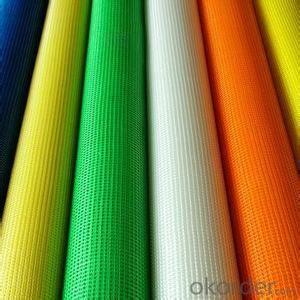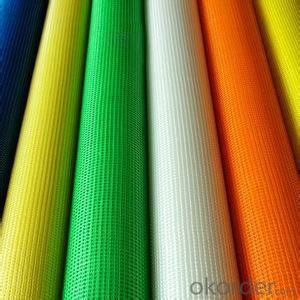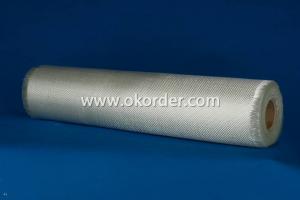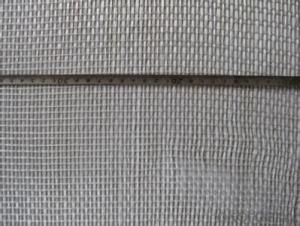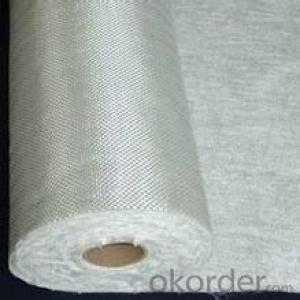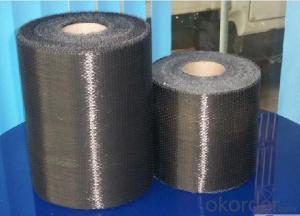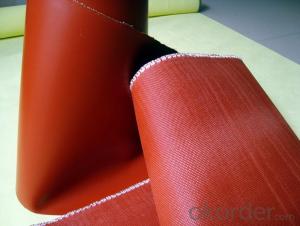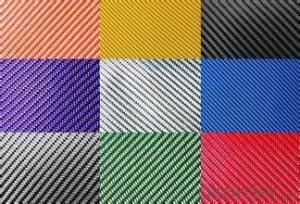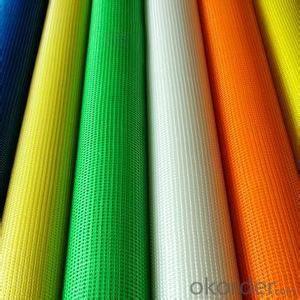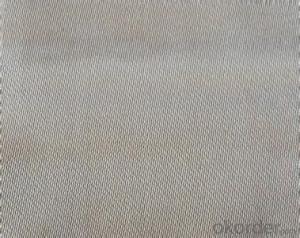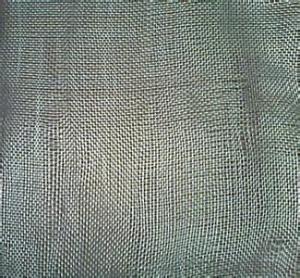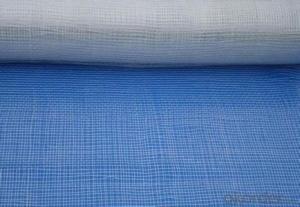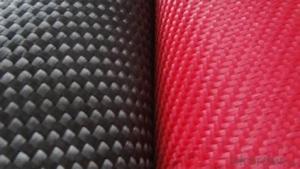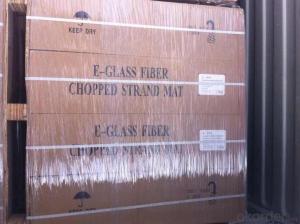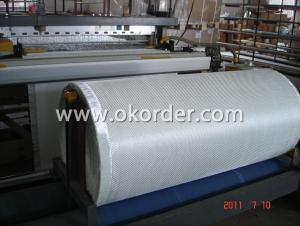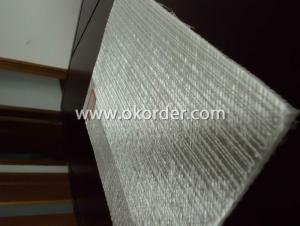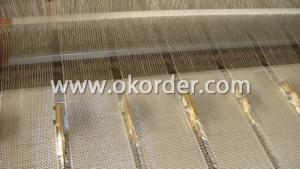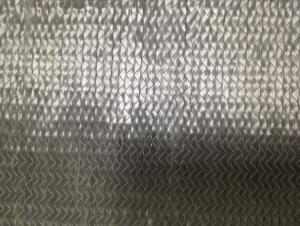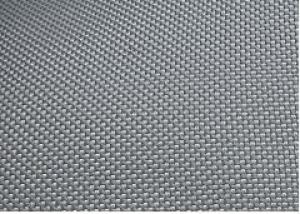Fiberglass Fabrics - High Silica Glass Fiber Cloth 2024
- Loading Port:
- China Main Port
- Payment Terms:
- TT OR LC
- Min Order Qty:
- -
- Supply Capability:
- -
OKorder Service Pledge
Quality Product, Order Online Tracking, Timely Delivery
OKorder Financial Service
Credit Rating, Credit Services, Credit Purchasing
You Might Also Like
Quick Details
| Place of Origin: | Brand Name: | Model Number: | |||
| Application: | Weight: | Surface Treatment: | |||
| Width: | Weave Type: | Yarn Type: | |||
| Alkali Content: | Standing Temperature: |
Packaging & Delivery
| Packaging Detail: | woven bag or as customer required |
| Delivery Detail: | as customer request |
Specifications
3,Low thermal conductivity
4,Good chemical stability
5,Good electrical insulating performance
6,Non-pollution, API standard
- Q: How does fiberglass fabric handle oil and grease?
- Oil and grease are typically resisted by fiberglass fabric. Due to the non-porous quality of fiberglass, it becomes challenging for oil and grease to infiltrate the fabric, resulting in effortless cleaning and upkeep. Generally, spills can be effortlessly eradicated from the fabric's surface, leaving no traces or remnants. Nevertheless, it is vital to acknowledge that the resistance level may differ based on the exact kind of fiberglass fabric and the length of time it is exposed to oil and grease.
- Q: How does fiberglass fabric perform in corrosive environments in chemical plants?
- Fiberglass fabric is highly resistant to corrosion and performs exceptionally well in corrosive environments in chemical plants. Its non-reactive nature and excellent chemical resistance make it an ideal choice for protecting equipment and structures from the damaging effects of corrosive substances. Additionally, fiberglass fabric has a high tensile strength and is lightweight, making it easy to install and maintain. Overall, fiberglass fabric offers long-lasting durability and reliability in corrosive environments, ensuring the safety and efficiency of chemical plant operations.
- Q: What are the different coating options available for fiberglass fabric?
- Fiberglass fabric can be coated with various options to enhance its properties and suitability for different applications. Here are some examples: 1. For heat resistance and high temperature endurance, silicone coating is an excellent choice. It also provides good chemical resistance, making it suitable for industries like aerospace, automotive, and insulation. 2. If you need a durable and flexible finish, polyurethane coating is the way to go. It offers abrasion resistance, waterproofing, and UV stability, making it commonly used in outdoor covers, tents, and awnings. 3. PTFE coating, known for its non-stick properties and resistance to chemicals, heat, and weathering, is ideal for applications requiring electrical insulation and low friction. It is often used in conveyor belts, release sheets, and insulation. 4. Acrylic coating enhances fiberglass fabric's durability and strength, providing a smooth finish. It also offers resistance to UV rays, mildew, and abrasion, making it suitable for marine covers, outdoor furniture, and bags. 5. Neoprene coating excels in resisting oil, chemicals, and weathering, and it offers good flame resistance and flexibility. It is commonly used in protective clothing, gloves, and industrial curtains. 6. Vinyl coating provides a waterproof and durable finish, with resistance to UV rays, abrasion, and chemicals. It is often used in outdoor furniture, truck covers, and pool liners. These examples represent just a few of the coating options available for fiberglass fabric. The specific choice depends on the application's requirements, such as heat resistance, chemical resistance, flexibility, and durability.
- Q: Is fiberglass fabric suitable for making protective covers for machinery?
- Yes, fiberglass fabric is suitable for making protective covers for machinery. It is a durable and strong material that offers excellent resistance to heat, chemicals, and abrasion. Additionally, fiberglass fabric is lightweight, flexible, and can be easily molded to fit various shapes and sizes, making it an ideal choice for protective covers that need to provide reliable protection against potential hazards.
- Q: How does fiberglass fabric perform in high-humidity environments?
- Fiberglass fabric typically performs well in high-humidity environments. Due to its non-absorbent nature, it does not retain moisture, preventing mold and mildew growth. Additionally, fiberglass fabric is resistant to rot and decay, making it highly durable and suitable for prolonged exposure to moisture.
- Q: How does fiberglass fabric perform in moisture absorption?
- Known for its exceptional moisture absorption performance, fiberglass fabric boasts a remarkably low rate of moisture absorption due to its inherent composition. The fabric is crafted from fine glass fibers intricately woven together, forming a dense and tight structure that effectively blocks moisture penetration. Compared to materials like cotton or polyester, fiberglass fabric exhibits significantly lower moisture absorption. It does not readily absorb moisture like natural fibers nor retain water for prolonged periods. This quality proves advantageous in scenarios that prioritize moisture resistance, such as outdoor or marine environments. The fabric's low moisture absorption also ensures its dimensional stability. Even when exposed to high humidity or moisture levels, it remains unaffected by swelling or warping. Consequently, fiberglass fabric proves ideal for applications that necessitate shape and structural integrity maintenance, such as composite materials or reinforcement applications. Moreover, the fabric's minimal moisture absorption further contributes to its resistance against mold and mildew growth. As the fabric does not easily absorb moisture, it creates an unfavorable environment for the proliferation of these microorganisms. This characteristic renders fiberglass fabric a popular choice for applications that prioritize moisture resistance and hygiene, such as the production of medical equipment or within the food processing industry. In conclusion, fiberglass fabric excels in moisture absorption. Its low moisture absorption rate, dimensional stability, and resistance to mold and mildew growth establish it as a dependable choice across various industries and applications.
- Q: Is fiberglass fabric resistant to UV discoloration?
- Yes, fiberglass fabric is resistant to UV discoloration. Fiberglass is known for its excellent UV resistance, making it a suitable choice for applications that are exposed to the sun for prolonged periods. The fabric is specifically designed to withstand the damaging effects of ultraviolet radiation, which can cause discoloration and degradation over time. By using fiberglass fabric, you can ensure that your materials will maintain their original color and appearance even when exposed to sunlight for extended periods.
- Q: What are the main properties of fiberglass fabric?
- The main properties of fiberglass fabric include high tensile strength, excellent heat resistance, good dimensional stability, and strong chemical resistance. It is also lightweight, durable, and has low thermal conductivity. Additionally, fiberglass fabric is non-flammable and provides good insulation properties.
- Q: Can fiberglass fabrics be used for reinforcement in sporting goods?
- Indeed, fiberglass fabrics have the capability to reinforce sporting goods. Renowned for its robustness and endurance, fiberglass proves to be the perfect material for strengthening a wide array of sporting equipment including surfboards, kayaks, skis, and hockey sticks. The lightweight characteristic of fiberglass additionally contributes to enhanced maneuverability and performance in these athletic articles. Furthermore, the flexibility of fiberglass fabrics allows them to be molded effortlessly into diverse forms and dimensions, guaranteeing an impeccable fit for the particular sporting equipment being reinforced. In summary, fiberglass fabrics provide exceptional reinforcement attributes, rendering them a favored option in the production of sporting goods.
- Q: What's the quality of waterproof made of fiberglass fabric and waterproof coating?
- Terrace with waterproof coating, flexible waterproof better, but the cost slightly higher, glass fiber cloth cheap, but the quality is worse
Send your message to us
Fiberglass Fabrics - High Silica Glass Fiber Cloth 2024
- Loading Port:
- China Main Port
- Payment Terms:
- TT OR LC
- Min Order Qty:
- -
- Supply Capability:
- -
OKorder Service Pledge
Quality Product, Order Online Tracking, Timely Delivery
OKorder Financial Service
Credit Rating, Credit Services, Credit Purchasing
Similar products
Hot products
Hot Searches
Related keywords
